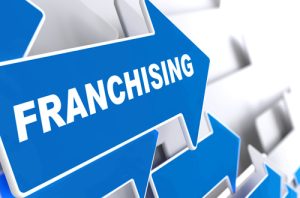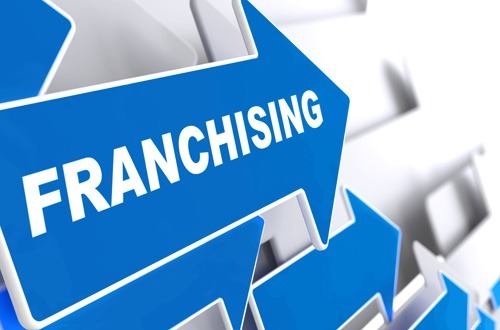
Most discussions about the business of franchising usually centre on the franchisee – including which franchise brands they should buy, how to raise the necessary capital and dealing with franchise costs.
However, there are a lot of considerations that have to go into deciding to be a franchisor too, says Derek Smith joint managing director of Hot Dog Cafe, a fast food concept that has been running for over 18 years.
“Franchising is a fantastic method for raising capital and employing dedicated, passionate and motivated management (franchisees) to grow a business concept quickly and effectively,” says Smith who is also former chairman of Franchising Association of South Africa (FASA), the franchising sector industry body.
“When implemented correctly a good franchise results in a win-win situation as it also reduces the investor’s risks. However, if it was easy, every franchise would be a stunning success and sadly that is not always the case,” Smith says.
Smith has some ideas on how potential franchisors can find out if franchising their concept is a good idea or not.
“If the original concept from which the franchise derives is successful and proven, the next step to ensuring the long term success, to the benefit for all parties involved, is the implementation of some basic principles and structures,” says Smith.
“When becoming a franchisor you are placing yourself in a position of social responsibility. People are going to trust you with their life savings”
Here are Smith’s 4 considerations that every potential franchisor should consider.
1. ASK YOURSELF WHY you wish to franchise your business – if your business is that good, then why share it with others?
Normally the main motivation to franchise a business is that the owner wishes to expand and needs additional capital to do so. In addition, the business will acquire dedicated and committed business partners (franchisees) who will help the original owners to achieve their objectives. In this way the business will achieve critical mass more speedily and both parties will benefit from:
- Lower input costs via bulk purchasing.
- The establishment of specialised service departments such as product development and project management, which become affordable to the system.
- Improved sales and brand awareness through mass marketing which is unaffordable to the small independent business.
- Improved capital value as the brand attains household recognition.
And in time everybody wins!
What is actually happening in this scenario is that the originator of the business has taken some of his short-term profitability and exchanged it for faster growth to gain a better long-term reward. Sometimes this is essential for the success of the operation.
However, this is not the only scenario which motivates the franchising of a business.
2. CONSIDER THAT when becoming a franchisor you are placing yourself in a position of social responsibility.
People are going to trust you with their life savings. Many people who want to become franchisees are going into the business for the first time and are very vulnerable because of their lack of experience.
Ensure that you are ready to accept your fair share of responsibility for their success or failure. It is a certainty that if you do not fulfil your responsibilities correctly your franchisees will let you know in no uncertain terms. It is also a sad reality that many will blame you for their failures even if you have done everything you can to help your franchisees. These responsibilities can weigh heavily on your shoulders as a franchisor at times.
“Becoming a franchisor requires a substantial amount of short-term funding which, if successfully employed, will result in a long-term return”
3. WORK OUT whether you are selling a ‘business opportunity’ or a ‘business format franchise’
Understanding this difference is critical as it determines how you operate your business. It is also essential that you understand clearly what your responsibilities are so that you do not inadvertently mislead prospective franchisees.
The hot dog vending business explicitly shows the difference between the two options. Some operators will sell you a cart, paint it the same colour as other purchasers of carts, give you a skimpy manual telling you how to operate and make a fortune and let you loose on the unsuspecting public. Such operations do not closely monitor, control or support their ‘franchisees’.
This style of operating creates a ‘business opportunity’ and should not be called anything else because it would be misleading to do so. And by the way – there is nothing wrong in marketing a ‘business opportunity’ as long as you are clear about what you are selling.
Another operator will offer you a ‘franchise’ and this business has a strictly documented and proven format. It will be difficult to become an approved franchisee as the franchisor will want to be convinced that the prospective franchisee is suited to the industry. The training course will be time consuming and arduous. The business systems will be well documented and strictly enforced.
The franchise will be regularly and strictly monitored as to their adherence to the system. There will be continuous communication between the franchisor and franchisee and interaction in respect of product development and marketing. This is the ‘business format franchise’ which is what the general public expects from someone who calls themselves a franchisor. It is a protective structure for the relatively innocent investor. My comparison is very basic but the differences must be clearly understood by any prospective franchisor.
4. UNDERSTAND THE FINANCIAL AND TIME IMPLICATIONS, becoming a franchisor requires a substantial amount of short-term funding which, if successfully employed, will result in a long-term return.
Why do I say this …. simple… you must invest in the required infrastructure prior to marketing the franchise. Where does this money go, you may ask? This investment is made in people’s time for the development of the necessary structure and documentation.
Ask yourself how long it takes to correctly develop an operations manual detailing every part of your operation, a training manual, a training course, a franchise agreement, a disclosure document, setting up standards of operation, evaluation procedures, the hiring and training of franchise consultants. After this is all completed you must run a pilot project and make sure it all works in practice. This requires a great deal of time and effort … and money.
“Steer clear of pressure to grow a franchise too quickly as this in turn may lead to poor decision making and damage to the brand”
Don’t for a minute think you can do this in your spare time whilst also running your own operations. Franchising is a business separate to your original concept and should be treated accordingly.
In the early days of a franchise the royalty income from the franchisees will not be adequate to cover the costs incurred in establishing the infrastructure necessary to support them. In addition the franchisee’s contribution to the marketing fund will be smaller than that of the franchisor. If the franchisor does not have development capital available or another source of income (such as their own operations) then a cash flow crisis is inevitable.
In turn, a cash flow crisis will put pressure on a franchisor to roll out their franchise system faster than may be prudent, resulting in the acceptance of unsuitable franchisees or, even worse, the promotion of doubtful sites. How often has this happened where a good idea has ended up on the rocks because it was under-funded and management has lost direction?
Always ask yourself the question as a franchisor – “would I invest my own money in this site?” If you have the slightest doubt then you must refuse to allow your franchisee to invest their money in the site.
In the same way always steer clear of pressure to grow a franchise too quickly as this in turn may lead to poor decision making and damage to the brand. Very few potential franchisors have the capital to achieve critical mass in their marketplace in the short term. There are obviously exceptions but they are not the norm.
As such a new franchisor should aim to achieve critical mass in small but high profile geographical areas. At least saturate a city such as Pretoria and become a brand in that area rather than being so thinly spread that your brand is not recognised anywhere.
In this article I have tried to share some of my experiences as a franchisor. I may have created some reservations in your mind, but I would like to emphasise that if you get the basics right before you start, then the journey will be extremely exciting and very beneficial to your company. In addition there is also not greater feeling than building a successful franchise which in turns trains new entrepreneurs and creates new jobs in a country which so badly needs them.






